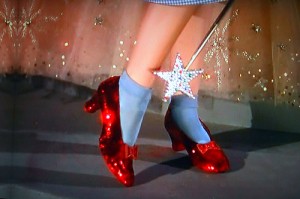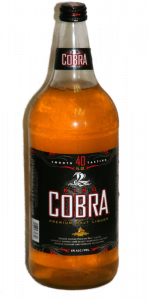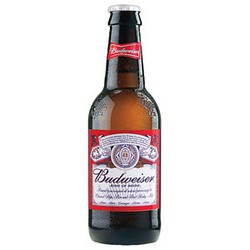March 7, 2013 at 10:16 am
My LA346 students may be particularly interested in a new law in Arkansas that will ban abortions starting at twelve weeks. Thoughts on its constitutionality?
By Rachel Spooner
|
Posted in Uncategorized
|
March 7, 2013 at 10:07 am
In the last few days I have had several students question the relevance of LA245. This is good. I welcome the skepticism, and see exactly where it comes from. For many, the law seems far afield from their future careers as accountants, entrepreneurs, or bankers. The beginning of the semester does little to clarify; we must lay the groundwork necessary to understand all legal issues, not just those important to business. As we progress, the relevance of the course should become more obvious. Every accountant or banker must know something about securities regulation. Every business owner must choose how to organize legally. Every manager must know her rights and obligations with regard to employees. Every company that wants to sell something across borders must understand international sales contracts. Here is an interesting take on the relevance of lawyers to innovation, for those entrepreneurs out there.
The goals of LA245 are the following:
- provide future businesspeople with the ability to spot legal issues
- provide future businesspeople with the vocabulary to discuss these issues with their lawyers
- provide global citizens with knowledge of legal issues that impact most people's lives
Most notable is what is NOT our goal: to create future lawyers. We often do end up inspiring students to pursue a career in law, which is rewarding. But we assume that the vast majority of our students will not go to law school, so we do not intend to be a pre-law curriculum.
Remember that your education is a two-way street. If you want to connect your classrooms to your lives or future careers, ask questions. Seek out more information on topics that you think are most relevant to you. Ultimately that will make you smarter, and you will enjoy the journey of your education much more.
By Rachel Spooner
|
Posted in Uncategorized
|
March 4, 2013 at 10:05 am
My kids are really excited for Friday's release of the movie Oz The Great and Powerful. Indeed, my daughter was Dorothy last Halloween.  I have to admit I am actually looking forward to seeing this movie (unlike most of their movies) because I grew up watching the Wizard of Oz every year when it was on TV. I hadn't realized that the new Oz movie is not being made by the company that owns the rights to the Wizard of Oz, but instead by Disney. This raises issues of intellectual property law. We haven't covered these laws in class yet, but the purpose of intellectual property laws is to provide protection for those that create or invent. The laws at issue here are copyright laws, which give the owner the exclusive right to use the copyrighted material, which are the tangible expression of their ideas. Dorothy's sparkling ruby slippers? Those belong to Warner Brothers, so Disney can't use them.
I have to admit I am actually looking forward to seeing this movie (unlike most of their movies) because I grew up watching the Wizard of Oz every year when it was on TV. I hadn't realized that the new Oz movie is not being made by the company that owns the rights to the Wizard of Oz, but instead by Disney. This raises issues of intellectual property law. We haven't covered these laws in class yet, but the purpose of intellectual property laws is to provide protection for those that create or invent. The laws at issue here are copyright laws, which give the owner the exclusive right to use the copyrighted material, which are the tangible expression of their ideas. Dorothy's sparkling ruby slippers? Those belong to Warner Brothers, so Disney can't use them.  The yellow brick road? Disney will have one, but it won't be all twisted and twirling like the road in the original. This New York Times article highlights the detailed and arduous process that the Disney movie-makers and their lawyers had to go through to make sure every aspect of their movie was different enough to avoid violating Warner Brothers' copyrights. It is a really interesting real-life application of our intellectual property laws. I will report back after I see the movie this weekend, and see if I think any of the movie was in violation.
The yellow brick road? Disney will have one, but it won't be all twisted and twirling like the road in the original. This New York Times article highlights the detailed and arduous process that the Disney movie-makers and their lawyers had to go through to make sure every aspect of their movie was different enough to avoid violating Warner Brothers' copyrights. It is a really interesting real-life application of our intellectual property laws. I will report back after I see the movie this weekend, and see if I think any of the movie was in violation.
By Rachel Spooner
|
Posted in Uncategorized
|
March 4, 2013 at 9:48 am
I may have sunk to a new low here, because I am about to link you to an article on TMZ. Not exactly a scholarly publication, but TMZ does give us a helpful update on the lawsuit brought by James Franco's NYU professor against the actor. You will recall that James Franco said mean things about the professor after the professor gave him a bad grade.
The professor sued for the tort of defamation, but Franco never responded to the lawsuit in court. Thus, the professor has made a motion for default judgment. We learned in Chapter 3 that a plaintiff can ask for default judgment, meaning a judgment by the court that the plaintiff wins, if the defendant fails to respond to the complaint on time. Franco has decided to wake up, and actually defend himself in court. He is arguing he wasn't properly served with the complaint, and that his statement was protected by the 1st Amendment because it was his opinion. As we know, if Franco's statement was opinion, Franco is correct.
Of course, the best part of the entire update is the photo of Franco sleeping in class. I would have failed him too.
By Rachel Spooner
|
Posted in Uncategorized
|
February 26, 2013 at 8:34 pm
This seems to be a theme this semester. Anheuser-Busch is being sued for watering down their (cheap) beer, including Budweiser , Michelob, and other special beers like King Cobra
, Michelob, and other special beers like King Cobra (I had no idea they still made this crap). It seems that former employees have blown the whistle on the company, alleging that right before the beer was bottled, water was added. The plaintiffs claim they were harmed because watering down the beer lowers the alcohol content from that which is advertised on the bottle. The best part of all of this? This lawsuit is a class action. Finally a certified class that you may all be able to join!
(I had no idea they still made this crap). It seems that former employees have blown the whistle on the company, alleging that right before the beer was bottled, water was added. The plaintiffs claim they were harmed because watering down the beer lowers the alcohol content from that which is advertised on the bottle. The best part of all of this? This lawsuit is a class action. Finally a certified class that you may all be able to join!
A little advice from your wise professor? Drink good beer (once you are 21, of course). You will feel much better in the morning.
By Rachel Spooner
|
Posted in Uncategorized
|
February 19, 2013 at 10:06 pm
This is Zeus.
According to the Supreme Court, we can all trust Zeus to protect our Fourth Amendment rights. Doesn't he look smart and trustworthy?
Well, at least he is cute. This is Aldo.  He was a police dog in Florida. Clayton Harris, a man addicted to methamphetamine, was pulled over for an expired license plate. Harris was nervous and acting funny, but that wasn't enough to give the police the right to search the vehicle. The police officer asked to search, but Harris said no. So the police had Aldo sniff around the car. Aldo signaled that he smelled something funny by the door. The police used that as grounds to search the car, where the police found evidence of materials used to make methamphetamine. Harris was read his rights, and then started blabbing about being addicted to meth. During his trial, his lawyer tried to suppress the evidence, but the court refused. Harris later appealed.
He was a police dog in Florida. Clayton Harris, a man addicted to methamphetamine, was pulled over for an expired license plate. Harris was nervous and acting funny, but that wasn't enough to give the police the right to search the vehicle. The police officer asked to search, but Harris said no. So the police had Aldo sniff around the car. Aldo signaled that he smelled something funny by the door. The police used that as grounds to search the car, where the police found evidence of materials used to make methamphetamine. Harris was read his rights, and then started blabbing about being addicted to meth. During his trial, his lawyer tried to suppress the evidence, but the court refused. Harris later appealed.
Harris actually won in the Florida Supreme Court, which ruled that not just any dog will do to create probable cause to search, but only a special dog that meets the checklist of qualifications the Court created. The Court wanted the police to show a record of accurate signals versus false alarms, and give proof of training. Sorry, Zeus.
Yesterday the U.S. Supreme Court reversed, ruling that a dog's sniff can be grounds for probable cause if a "reasonably prudent person" would believe that the dog's actions would turn up evidence of illegal activity. As Justice Kagan put it, “[a] sniff is up to snuff when it meets that test.”
The law at issue here is the Fourth Amendment to the Constitution. The Fourth Amendment protects us against unreasonable searches and seizures by the government, which are defined as those without a warrant. There are some exceptions to the warrant requirement, and a car is particularly vulnerable to those exceptions. But it still remains that in order to do a search, the police must have "probable cause." Now, however, even Zeus can provide probable cause. Here's one more picture of Zeus, just so you know who will be determining your rights.

** No animals were harmed in the writing of this blog. Unless you count being dressed up by a six year old as harm.**
By Rachel Spooner
|
Posted in Uncategorized
|
February 14, 2013 at 9:53 pm
One of my students sent me this CRAZY article about a student suing her professor over a grade. There is always more to the story, as there is here. The most insane part of it all is that the judge denied the professor's motion to dismiss the complaint.
Uh oh, I better hire a lawyer!
By Rachel Spooner
|
Posted in Uncategorized
|
February 9, 2013 at 12:08 pm


Cheap beer. It is the lifeblood of the American college student. Without it, you would all whither away. Or be more prepared for class.
Well, the Department of Justice has your back. The Antitrust Division has sued the maker of Budweiser to block its acquisition of the Mexican company that sells Corona. The DoJ argues that if the merger were to occur, the company would control too much of the American market, thus giving it the ability to drive up prices. The merger would mean the end of cheap beer.
If combined, the company would control 46% of the beer market in the United States. Although they argue there are plenty of other beer brands on the shelf, the reality is that most are owned by just a few companies.
The lawsuit is one of many recent aggressive moves by regulators here and in Europe to enforce antitrust laws. The Department of Justice blocked AT&T's purchase of T-Mobile in 2011. In Europe, UPS abandoned its plan to buy another delivery company after regulators there expressed concerns.
Should Anheuser-Busch and Modelo be able to combine if they want to? Is this too much government regulation? Or is the government just protecting our right to drink cheap beer?
By Rachel Spooner
|
Posted in Uncategorized
|
February 6, 2013 at 12:42 pm
In 2008 the United States suffered a terrible recession, one of the worst in our history. Now that we are on the path to recovery, the government is asking: who is to blame? Lots of banks and financial institutions have been sued, usually by the SEC, for their role in the financial collapse. Most have settled quickly, and moved on.
This week the government filed its lawsuit against Standard & Poor's Rating Service, commonly known as S&P. The complaint alleges that S&P knew that the housing market was collapsing, but failed to downgrade its ratings of the securities that consisted of bundled subprime mortgages. The lawsuit is backed up by interesting evidence, including several internal emails at S&P by employees making light of the housing crisis. One went as far as to refer to the Talking Heads song "Burning Down the House." People say the stupidest things in emails, don't they?
In many ways the government's claim relates to negligence, which is what we are studying now in LA245. Although the government is alleging intentional action (or inaction) by S&P, the lawsuit is at its heart asking who we can blame for the harm. With the collapse of the economy, that is a very complicated question to answer. Nonetheless, both sides are so far gearing up for a long court battle, and insisting they won't settle.
So what do you think? Can we blame the rating services for the financial collapse? If they had changed their ratings sooner would we have escaped financial distress?
By Rachel Spooner
|
Posted in Uncategorized
|
February 4, 2013 at 1:15 pm
We have talked about the role of juries in a civil litigation, but haven't yet given much thought to criminal procedure, and what juries do. Although the systems are parallel in many ways, the stakes are always higher in a criminal case, which gives every procedure more import. Perhaps the title of this post should have been "The Lack of ..." because in reality, jurors see such a small percentage of criminal cases that they don't play much of a role at all. Instead, the process is controlled by a prosecutor for the most part.
Until you or a loved one is involved in the criminal justice system, you probably don't give much thought to the discretion of prosecutors. But with the recent suicide of internet activist Aaron Swartz, people have been paying more attention. Swartz was accused of hacking into MIT's computer network and using his laptop to download thousands of academic articles. The prosecutor charged him with several crimes, and had just offered him a deal that would require him to plead guilty in exchange for a six month sentence. Then next day Swartz committed suicide.
As this article points out, Swartz may have had many other issues that led to his suicide. But the story has brought attention to the dirty little "secret" of the justice system: the prosecutor has almost limitless discretion in deciding who to charge with a crime, and what crimes to charge him with. I call this discretion a "secret" because no one really pays attention, although it isn't hidden.
There are lots of good reasons to give the prosecutor discretion, not the least of which is that he or she is representing all of us, the "people," in the courtroom. So we want the prosecutor to have the power to do the job. And to get the "bad guys." But every once in a while a case comes a long where we may disagree with the prosecutor, and it causes us to revisit how our system works. The article linked above is a really thoughtful look at what some academics are saying about how we could change the system to avoid abuse of discretion. Most of the suggestions relate to the role of juries, more specifically, giving every day people a greater say in other parts of the process.
An interesting example is the plea bargain. We will learn that plea bargains are negotiated between the defendant (really his lawyer) and the prosecutor, with almost no checks. The judge does have to approve the plea, but judges have a conflict of interest that might create a bias: they need to move cases, so they want plea bargains to be reached. So some researchers have suggested that jurors should have the right to weigh in on plea bargains. Interesting, but complicated idea.
What do you think about the role of prosecutors? Should jurors do more? Do any of the suggestions in the article make sense?
By Rachel Spooner
|
Posted in Uncategorized
|









